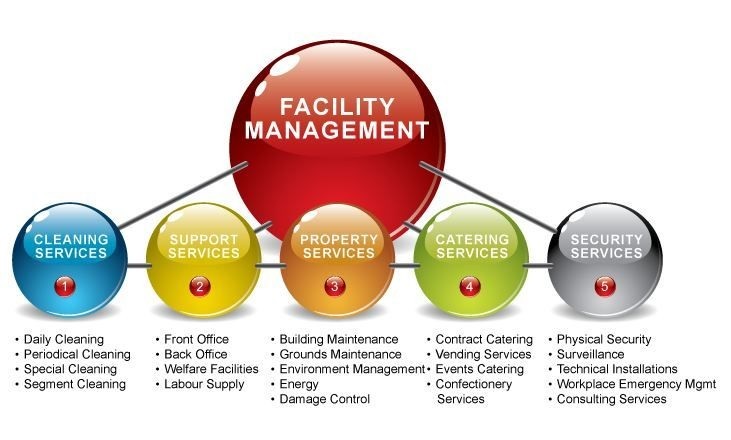Facilities management is a diverse, exciting industry for the capable individual. It’s also an exciting time to be in the facilities management industry. Why? Think growth. In 2020, the U.S. facilities management market was valued at $40.41 billion, with a forecast market value of $81.49 billion by 2026, according to Mordor Intelligence. That equates to a compound annual growth rate (CAGR) of 12.51% for the period 2021 to 2026. It is one of the fastest-growing professions in the world, right up there with IT software professionals and those in education and health.

What is driving this growth in the industry, both in the U.S. and globally? Industry verticals such as real estate, retail, manufacturing, and the public sector have all seen high infrastructural growth in recent years, with projections for continued growth for the next few years. That only bodes well for facilities management because where there is infrastructure (read: facilities), there is a need to manage it effectively.
However, as with any management position, there are expectations and demands of the facilities manager, both personally and professionally. Let us explore the core traits and skills common to most facilities managers.
Core Traits of an FM Manager
Trait: from the French, denoting a distinguishing quality or characteristic, typically one belonging to a person.
General personality traits
There are certain personality traits that are generally found in professionals in this industry. Three of these important personal traits can be described as the “ERA” traits for ethics, reliability, and accountability:
1. Ethics: A person in charge of a facilities team may often be tasked with making tough choices that may have an ethical dimension. These ethical decisions can vary. As such, facilities managers need to be ethical people in all they do.
2. Reliability: This personal trait is critically important. Firstly, facilities management is very much schedule-based and often project-managed. Projects, machinery, equipment, and management systems can literally fail if they are not reliably seen and managed. Therefore, the person at the helm of facilities management needs to be intrinsically (even boringly!) reliable. Secondly, the team that depends on their facilities manager for leadership needs to have someone whom they can trust to be reliable in their decision-making and management. Thirdly, executives and other management will often have to rely on the inputs and feedback of a facilities manager, and a reliable person is therefore needed.
3. Accountability: An ethical and reliable facilities manager is also, literally by default, someone who is accountable. Managers should be accountable to the executive management who have entrusted them with that responsibility, as well as being accountable to the team members who report to them.
There are other personal traits that are important in facilities managers, including the ability to empathize and to be fair in all that they do with their team.
Traits fit for the industry
Facility management is a specific industry with certain demands that require traits or characteristics fit for the industry. These include:
Ø Flexibility: There are no two identical days for the facilities manager. Curve balls are a mainstay of the job. This person needs to be mentally flexible.
Ø Client-Driven: Think stakeholders, think clients, all with different needs and demands. Understanding the fundamentals of customer service is key.
Ø Time-Diligent: A schedule-run and project-based industry means a manager’s timekeeping and ability to meet deadlines is not only necessary, it’s critical.
Ø Finicky: Great attention to detail is a necessary trait in an industry that is often predicated on the minutiae of systems, equipment, or machinery.
Ø Even-Tempered: This job is no doubt better suited to someone who operates evenly and is not easily triggered, given the high pressure of facilities work.
Core Skills of an FM Manager
Skill: from the Old Norse, denoting the ability to do something well or to have expertise in something.
The Houston, Texas-based International Facility Management Association (IFMA), the largest professional organization of its kind in the U.S., stipulates 11 core competencies for facility management:
- Communication
- Facility information and technology management
- Finance and business
- Leadership and strategy
- Occupancy and human factors
- Operations and maintenance
- Performance and quality
- Project management
- Real estate
- Risk management
- Sustainability
A few of these key competencies are worth exploring hereafter.
Personal skills
Relevant skills and education: It is increasingly rare for modern facilities managers to be able to rely solely on their experience and expertise in the field in order to be promoted to a managerial position. As John Thompson, a facilities professional with 12 years of experience, noted: “The days of being promoted because you are the guy who knows how the facility or power plant works are over.”
Increasingly, certifications are needed as part of a facility manager’s personal skills.
In the U.S., there are a plethora of different certifications that facilities professionals may consider to boost their skills. These may include:
Ø IFMA Certifications, such as those for facility management and sustainability in facilities;
Ø Building Owners and Managers Institute (BOMI) certifications;
Ø The Leadership in Energy and Environmental Design (LEED) program provided by the U.S. Green Building Council (USGBC); and
Ø Association of Energy Engineers (AEE) certifications, as recognized by the U.S. Department of Energy.
Interpersonal skills: The “ability to communicate effectively” may be the biggest cliché in the professional world, but it is resoundingly true for the facilities manager. This is one manager who needs to be able to be precise, authoritative, and effective when communicating, whether with a maintenance technician, subcontractor, client, or stakeholder. Facilities managers also need to be able to “read” people well, have empathy, and be fair and equitable in their treatment of others amid the situations that arise.
Managerial skills
Risk management: The facilities manager that doesn’t understand the fundamentals of risk management is like the captain lost at sea. The types of risk these managers need to understand, at least in terms of principles and main issues, can be divided into internal and external risks, and include:
Ø External risks:
- Financial risk;
- Strategic risk;
- Legal risk; and
- Other logistical or public risks: These can include everything from weather and climate change-related risk to public infrastructure and even political matters.
Ø Internal risks:
- Asset management—i.e., equipment, machinery, and inventory;
- Contractor management;
- Health and safety risk, including to employees, customers, and the public;
- Environmental impacts;
- IT security; and
- Data management risk.
Skills for a new age
The post-COVID 19 workplace: Social distancing, hyper-hygiene measures, hybrid workplaces—these are just some of the new factors that have arisen as the result of pandemic that has impacted facilities management worldwide. The facilities manager in this so-called “new norm” will need to be savvy about everything from optimized seating distribution in office buildings to the revision of HVAC measures and smart scheduling that address management and employee concerns.
The critical growth of software and AI: Facilities management is becoming increasingly automated and digitized, a sector that is replete with cloud-based technology and artificial intelligence (AI)-enhanced software. This is impacting the management, delivery, and reporting of facilities-related services. These will help an FM stay both up-to-date and in demand. Asset management in particular has been revolutionized by this digital tsunami. For example, there is no better way to plan and execute maintenance work than with a cloud-based, computerized maintenance management system (CMMS), along with other more traditional methods of managing and organizing maintenance, such as standard operating procedures (SOPs) and maintenance checklists.
Sustainability and sustainable practice: The modern facilities manager needs to understand triple bottom line considerations for the organization—i.e., the financial, social, and environmental issues that shape it. Sustainability and corporate social responsibility (CSR) are not new concepts to business, but their influence on facilities management continues to grow.
Ultimately, the sheer size and diversity of the facilities management industry should provide a good idea of the different traits and competencies needed for it:

As the saying goes, a picture can paint a thousand words. It’s clear that the facilities manager needs to be a multi-faceted, multi-skilled person. The pay-off is a career full of opportunities and scope.
Bryan Christiansen is the founder and CEO of Limble CMMS. Limble is a modern, easy-to-use mobile CMMS software that takes the stress and chaos out of maintenance by helping managers organize, automate, and streamline their maintenance operations.
